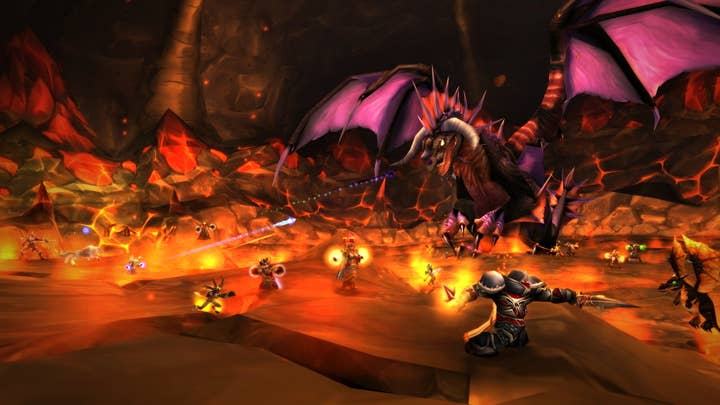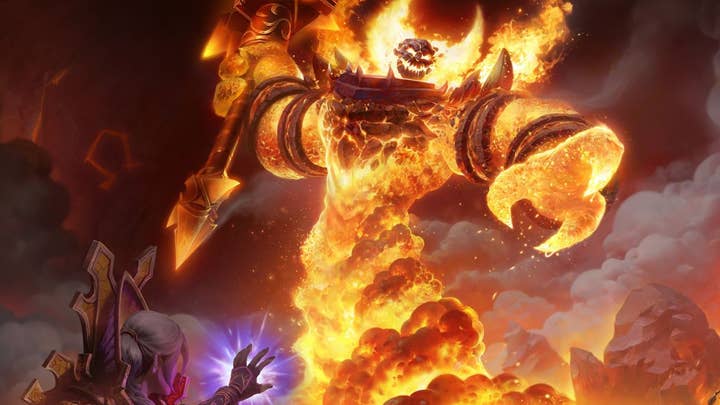WoW Classic reminds us of all we've lost | Opinion
Nostalgia for an earlier version of Blizzard's MMO is a stark reminder of how much of gaming's creative history continues to be lost entirely
It sounds at first like an April Fool's gag: "game studio announces that you'll soon be able to relive the nostalgia of playing their most popular title in its original form, back before they patched it to be less frustrating and look better." Yet that's for all intents and purposes what Blizzard is offering World of Warcraft players with its WoW Classic service -- the stripped down, unforgiving game that originally launched 15 years ago, rendered in all its chunky-looking glory -- and at least for the moment, it seems to be making pretty serious waves in the gaming community.
It's hard to say how much effort was actually required on Blizzard's part to get WoW Classic up and running, but I suspect it was a bit more than the "just dig the old code off a backup drive somewhere" procedure many consumers will be imagining. Nonetheless, for the amount of buzz it's created around World of Warcraft, it's undoubtedly been time and effort well spent.
"How much of the industry's cultural history is being washed away every single month by the proliferation of live service games?"
Now, I'll confess that the buzz is a little lost on me personally. It's not that I didn't dump countless months of my life into WoW like all the rest of you -- to this day I think part of my reticence to invest in a gaming PC is my recollection of how easily I slipped into a pretty hardcore WoW habit. Rather, it's that WoW didn't really come into its own for me until sometime around Wrath of the Lich King, so the outpouring of affection for earlier iterations of the game goes right over my head. I guess I've always been a Filthy Casual at heart.
Nonetheless, it's fascinating the see how much attention and demand Blizzard has generated for WoW Classic. This is something genuinely new for the industry. We've become accustomed to the enthusiasm that greets updates and re-releases of retro titles, most notably in the form of miniature retro consoles loaded with classic games, but WoW Classic is something quite different. A stripped-down retro re-release of a game that actually still has a very popular live service right now. WoW isn't a retro game -- it's a current, regularly updated and widely played game -- yet it's clear that a substantial number of consumers see an earlier iteration of that live service as being something different enough to qualify as an exciting retro re-release.
Aside from what this says about the accelerating cycles of "retro" gaming (WoW itself only launched back in 2004), the success of WoW Classic, whether it be long-term or merely flash-in-the-pan nostalgia, stands as strong evidence of something else as well -- namely how much of the industry's cultural history is being washed away every single month by the proliferation of live service games, and the lack of a clearly defined or well-implemented strategy or rulebook for archiving them.
"Efforts at archiving and preservation are being made, but they are poorly funded and disgracefully poorly supported by the industry itself"
The most obvious concerns in this regard are about games that simply disappear; online or mobile games that are discontinued by their creators, with their servers and licensing systems going offline and the games becoming entirely unplayable. In the worst-case scenario required code may be lost entirely, and the game -- however significant or minor it may have seemed, no matter how far-reaching or inconsequential its influence may have been -- is likely lost forever to would be archivists or students of this medium.
WoW Classic, however, highlights another major aspect of this problem. World of Warcraft is a hugely influential part of gaming history and culture, but nobody is worried about it going away entirely, at least not for now. It's an active, popular game that still makes plenty of money, after all. However, the fact that an earlier version of that game is so radically different that it's possible to launch it as a separate, "retro" service is a clear acknowledgement that WoW has evolved so much since launch that what you can play right now is effectively a whole different game.

That means the original game -- the first iteration of WoW and every iteration since then -- was effectively lost to history until such time as Blizzard opted to bring it back into service. It did so, of course, not out of a particular interest in preserving such an important part of gaming history; rather, it was because community efforts at preserving a classic iteration of WoW, efforts that Blizzard shut down through legal means, had acted as a proof of concept for the commercial appeal of the service.
"Publishers have shown time and again that they have zero regard for the cultural importance of the medium in which they do business"
WoW Classic points to the problem, in other words -- that even successful online titles are slowly erasing their own histories through ongoing updates -- but not to the solution. Because WoW is an anomaly, a rare title that's so ludicrously popular that such a retro re-release is actually commercially viable.
The situation regarding archiving our medium's creative history is growing ever more dire as more and more of the most influential and innovative games are edging closer to being services than products. They are heavily reliant on servers to the extent that a service shut-down will destroy the game entirely, and regularly patched in ways that overwrite the original experience that players enjoyed. Even some real landmarks, games that pioneered important innovations and had a major impact on the industry over time, have likely already been lost entirely -- or at least, the code and keys required to make them run are unavailable to archivists, and the possibility of anyone ever being able to play them again grows more remote by the day.
Efforts at archiving and preservation are being made, of course -- even supported by major libraries and other institutions in some cases -- but they are poorly funded, disgracefully poorly supported by the industry itself, and are chasing a rapidly moving technological target that makes the task increasingly difficult. Cloud computing, for all its promise, is a major offender in this regard; as games become increasingly reliant on cloud APIs and services, we're now reaching a point where even if you have all the requisite server code, it will be impossible to run the game in future if Google, Amazon or Microsoft have deprecated or altered elements of their service on which the servers used to rely.
Legal restrictions, meanwhile, remain a huge barrier to any hope of our medium's cultural history being successfully recorded and archived. Legal codes governing archival of creative works were drafted before service-based games and cloud computing were even dreamed of, and few modern legislators have any significant understanding of the issues involved. Publishers, for their part, see little commercial benefit in supporting such efforts -- especially for games that are end-of-life, and thus already money sinks to a large extent -- and have shown time and again that they have zero regard for the cultural importance of the medium in which they do business, except when a bit of lip service can get your logo onto a museum exhibition or a nice letter from a government department.
It's lovely, then, that people who remember old, old Azeroth fondly get a chance to dip back in. But the bubbling enthusiasm for WoW Classic should also be drawing our attention to the less palatable fact that, not too far down the line, anyone who wants to see how the MMOs and other online titles that shaped and defined a whole generation of games actually play is going to be totally out of luck. Given how enormously influential these games have been over the past two decades, that will be a deeply significant cultural loss for us all, and one that will impoverish our medium for decades to come.

